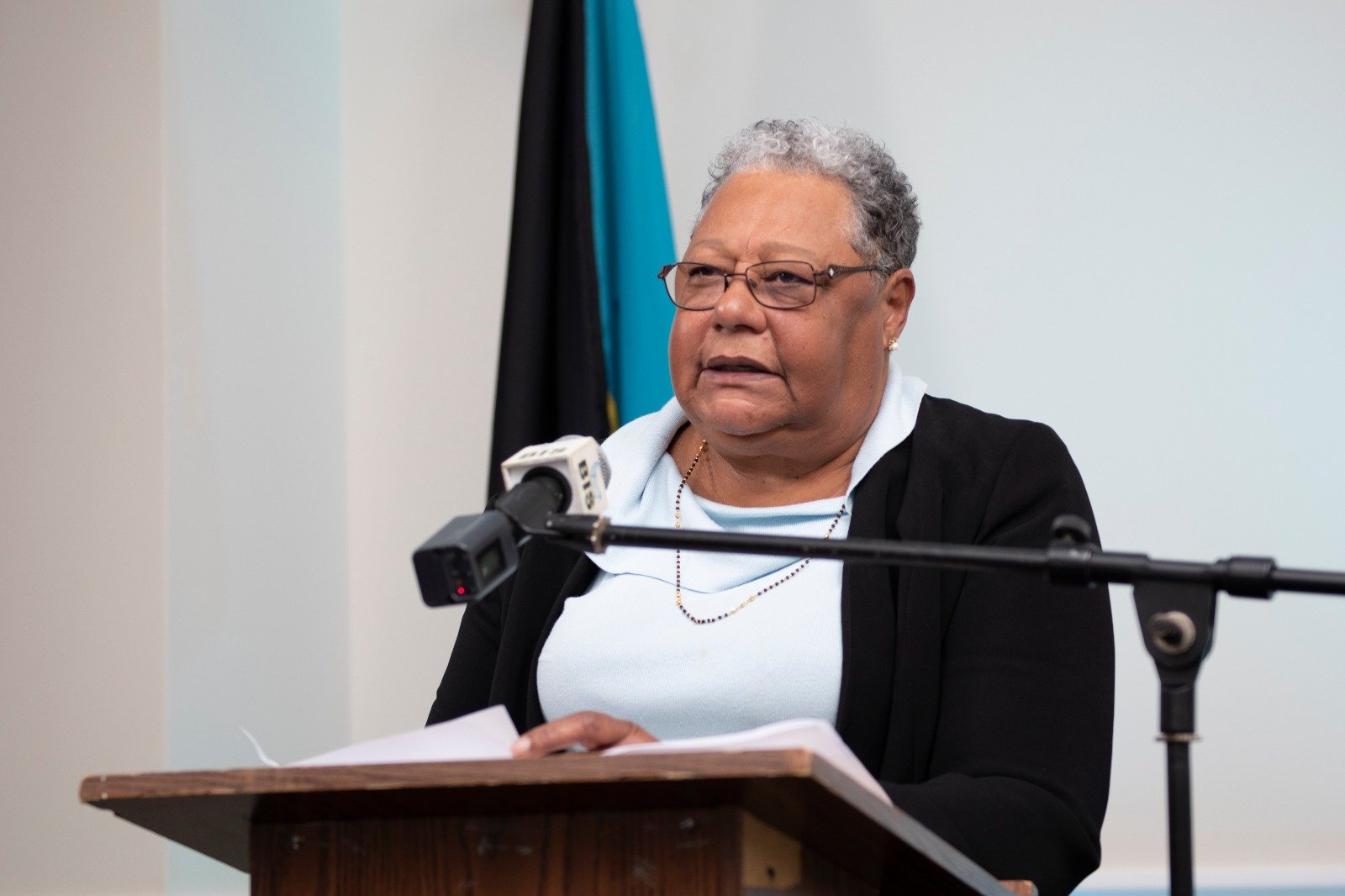NASSAU, BAHAMAS — Dr Merceline Dahl-Regis, chair of the National COVID-19 Vaccine Consultative Committee, said while there have been zero recorded hospitalizations or deaths associated with approved COVID-19 vaccines, a final determination has yet to be made on liability if there are severe adverse effects or deaths associated with vaccine administration in The Bahamas.
The government is expected to receive 100,000 doses of the AstraZeneca vaccine, beginning this month.
“They have not recorded any deaths associated with the vaccine,” Dahl-Regis said during the committee’s first national press conference on vaccination yesterday.

“That’s 100 million cases. Right now, it’s 105 million.
“They have not recorded any deaths, no hospitalizations and ICU admissions following 105 million doses administered of COVID-19 vaccines that has met EAU standard.
“In terms of the liability issues, this is a challenge in that The Bahamas government is asked to provide indemnity or coverage for this vaccine, and at this time, we don’t have a final determination of it.
“I think we have a few more weeks before the vaccine comes, so hopefully we’ll be able to answer that question for you more directly.”
Dahl-Regis said the government will only accept COVID-19 vaccines that have pre-qualified for use by the World Health Organization (WHO) and stringent regulatory authorities.
AstraZeneca, a viral vector vaccine, is administered in two doses.
This means the virus has been genetically altered so the vaccine behaves like the virus but does not cause the disease.
The vaccine has also been authorized for those older than 18, up to 65.
Dahl-Regis said there was a “high-spirited” debate about what would be the recommendation for use of the vaccine in The Bahamas based on age.
Based on new literature on the vaccine, she said the committee will review whether it can be made available to those over 65.
The vaccine will be free of charge; made available to all eligible adults, including those aged 65 and above; and rolled out strategically within a six-week plan that is being finalized to target priority groups such as healthcare workers, uniformed services other essential workers, those with comorbidities and others.
In a publication on Wednesday, the company behind the vaccine, AstraZeneca, said 100 percent protection had been confirmed against severe disease, hospitalization and death in the primary analysis of phase three trials.
“The primary analysis of the Phase III clinical trials from the United Kingdom, Brazil and South Africa, published as a preprint in The Lancet confirmed COVID-19 vaccine AstraZeneca is safe and effective at preventing COVID-19, with no severe cases and no hospitalizations more than 22 days after the first dose,” read the statement.
According to the results of the phase three trial, vaccine efficacy for AstraZeneca had reached 76 percent after a first dose, with protection maintained to the second dose.
And with an inter-dose interval of 12 weeks or more, vaccine efficacy increased to 82 percent.
The data also showed the potential for the vaccine to reduce asymptomatic transmission of the virus based on weekly swabs obtained from volunteers in the UK trial.
Positive readings on these swabs declined 67 percent after a single dose, and 50 percent after the two-dose regime.
Yesterday, Dahl-Regis said transmission of the virus throughout the country remains relatively low.
She attributed progress seen to date in large part to the sacrifices of Bahamians, and the contributions of the public and private sector throughout the course of the pandemic.
However, she reminded the public that the pandemic is ongoing.
Dahl-Regis said vaccination can prevent spread of the virus and save lives.
“Getting the vaccine not only protects you, but those around you,” she said.






